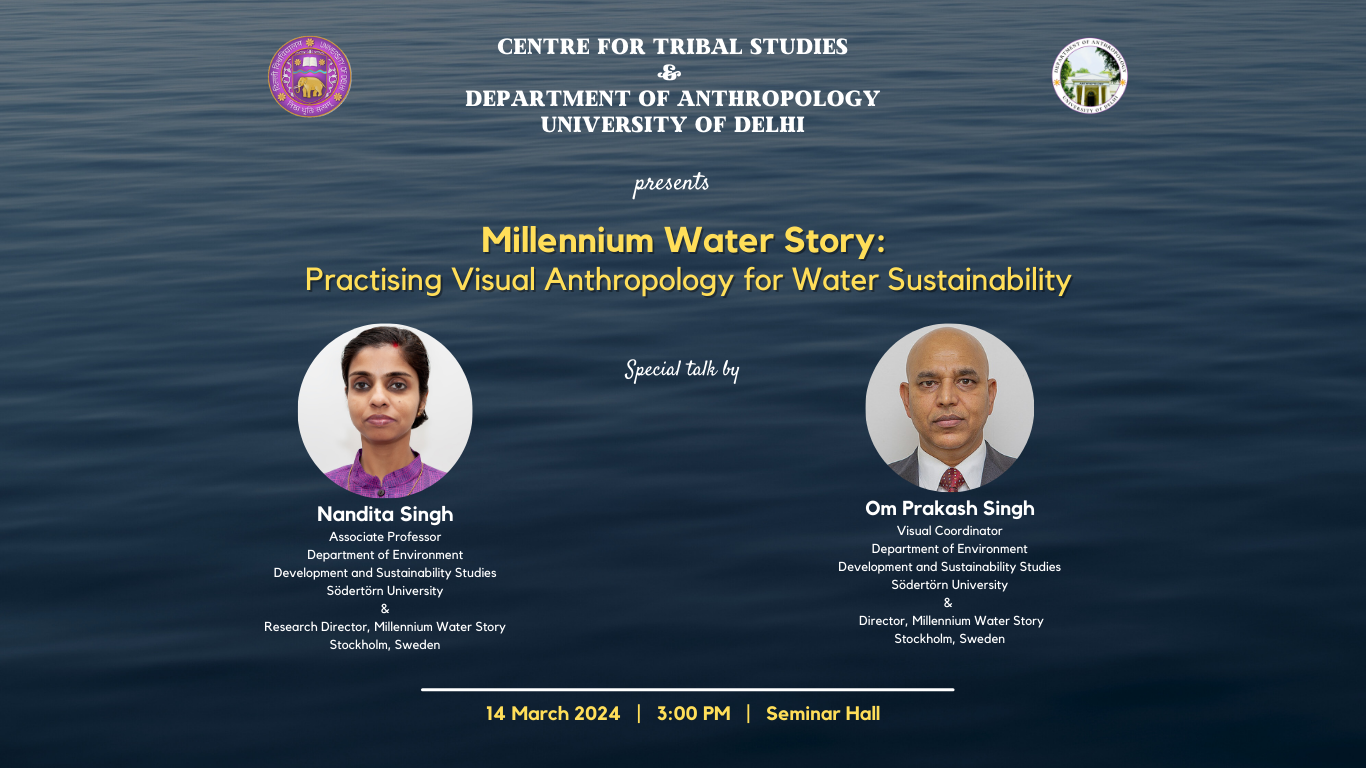- Home
- Event
Special Lecture
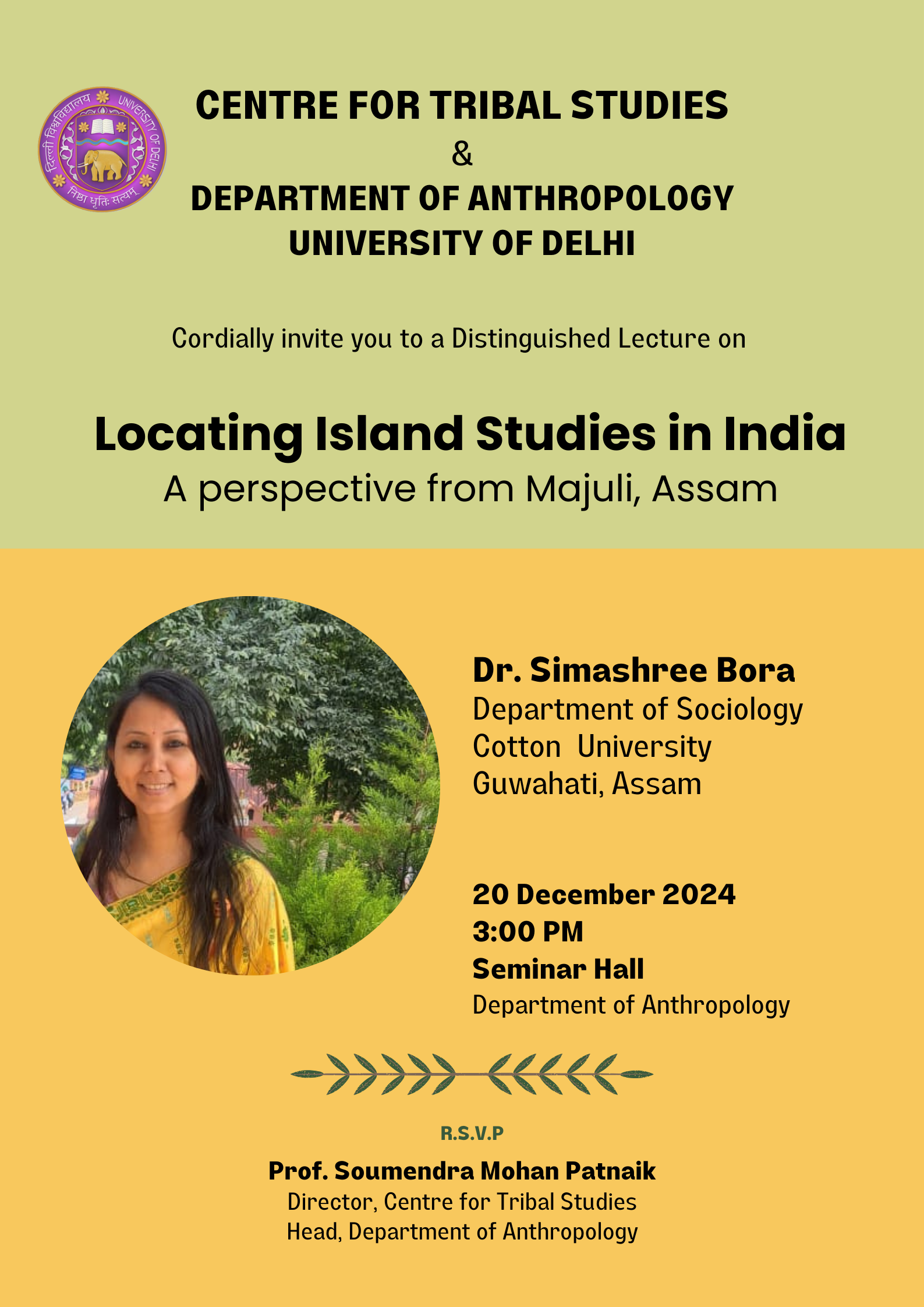
.png)
.png)
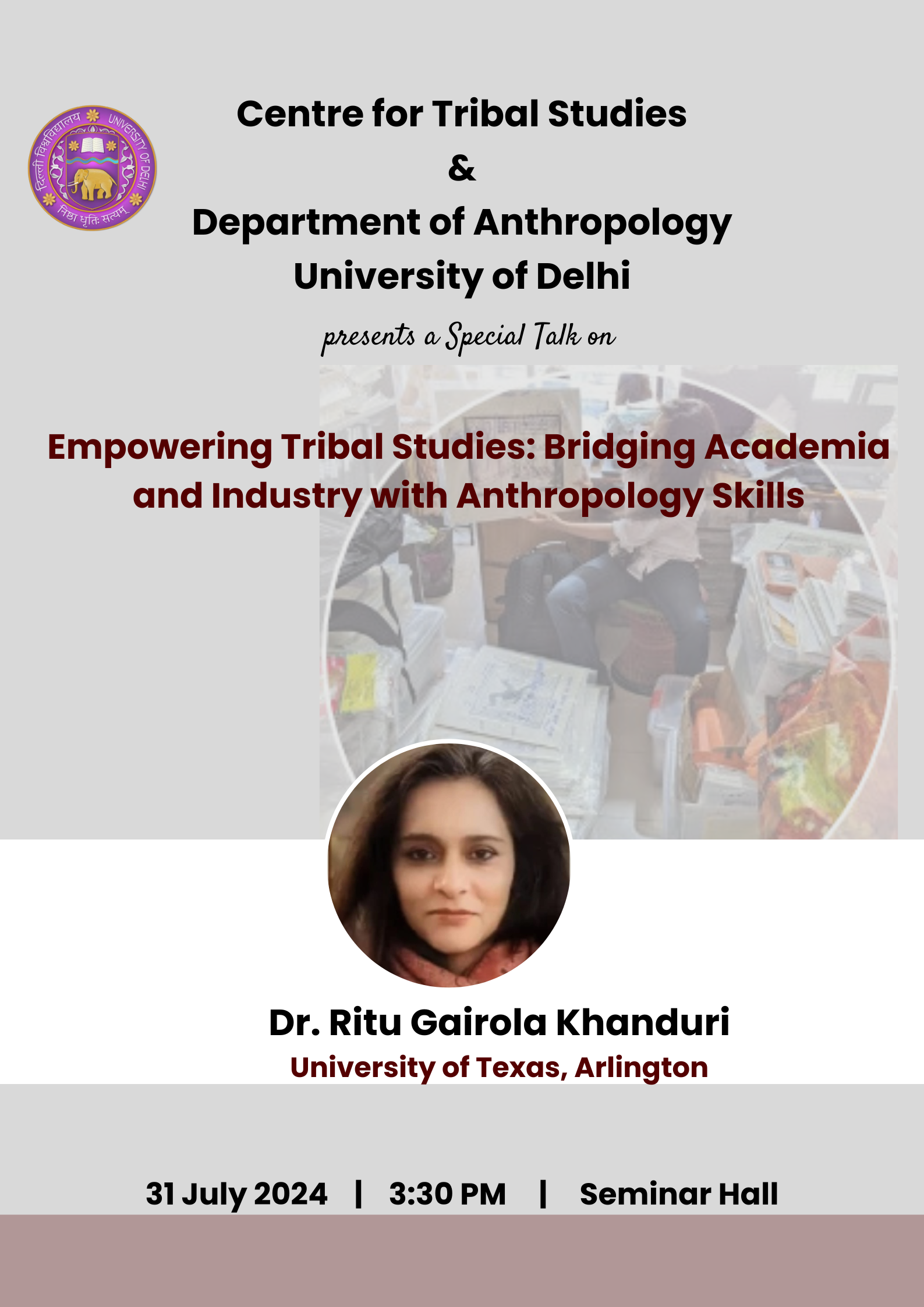
"Memories of the tribal heroes in the freedom struggle and nation building"
by Prof Anil Kumar, Head of the Janapada Sampada Division, Indira Gandhi National Centre for Arts, New Delhi (November 24, 2023)
On 24 November 2023 (afternoon), the Head of the Janapada Sampada Division, Indira Gandhi National Centre for Arts, Prof Anil Kumar, who belongs to the Pradhan tribe in Telangana, delivered a special talk on ‘Memories of the tribal heroes in the freedom struggle and nation building’. In his deliberation, he appealed to the participants to be empathetic towards the causes of the tribes. He said that understanding of the contemporary Indian tribes needs a new terminology. The term ‘Jana’ or ‘Janajati’ comes closer to the etymology of tribal reality. Quoting Harsh Chouhan, the former chairperson of the National Commission of Scheduled Tribes, he said that even the ‘Janajati Samuha’ could be another possibility. The present-day discourse needs to be centred around decolonizing the concept of tribe.
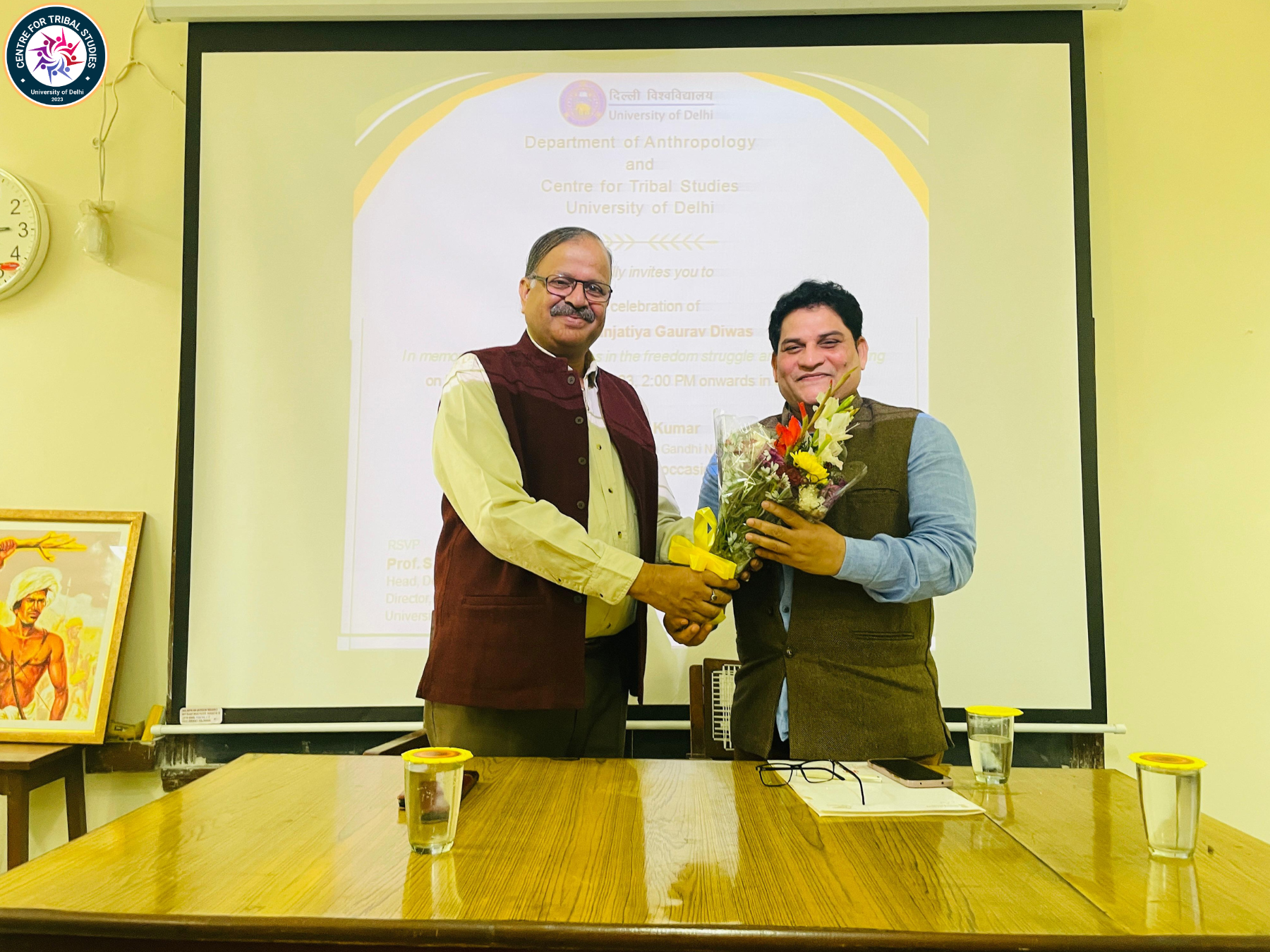
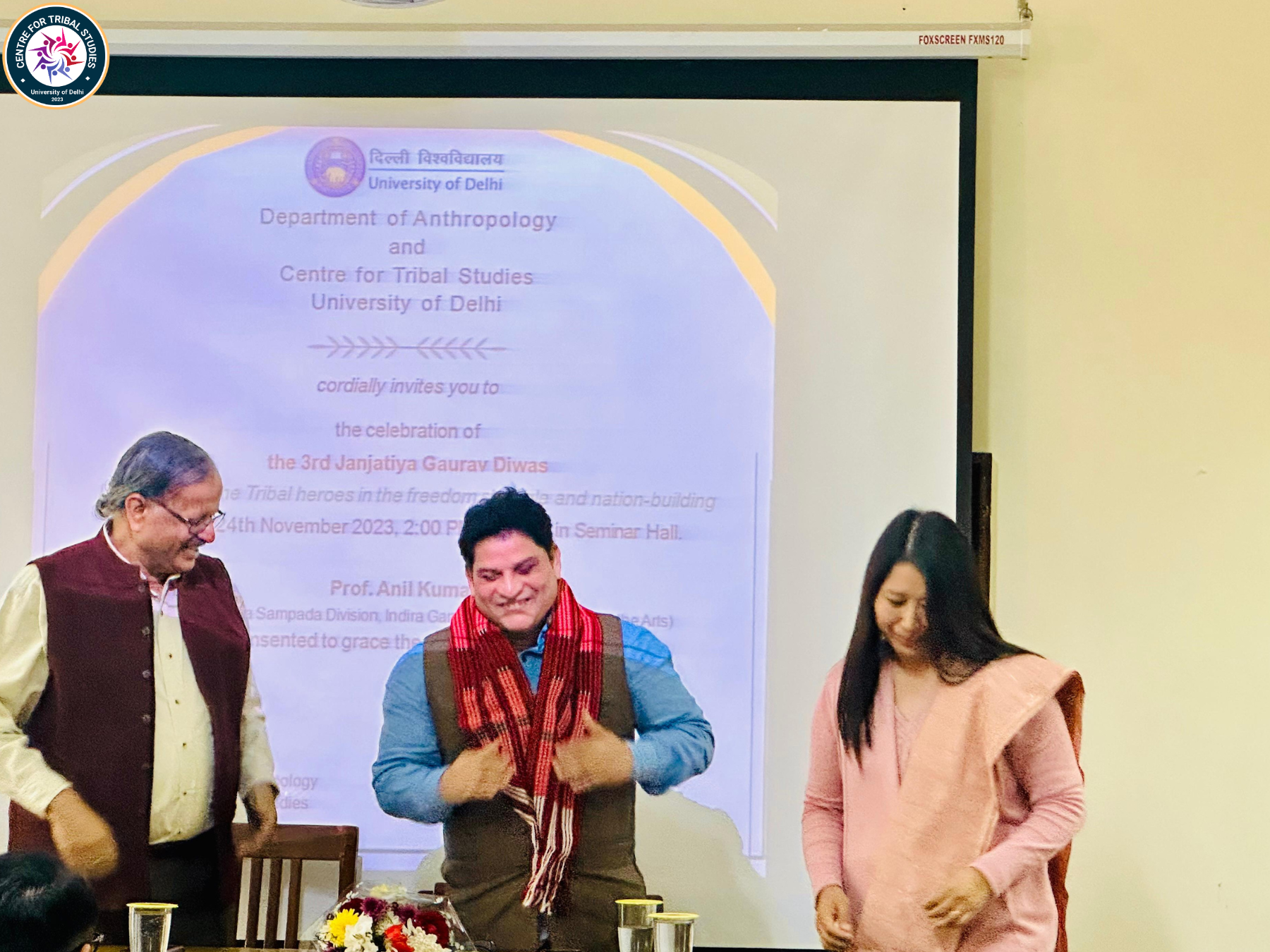
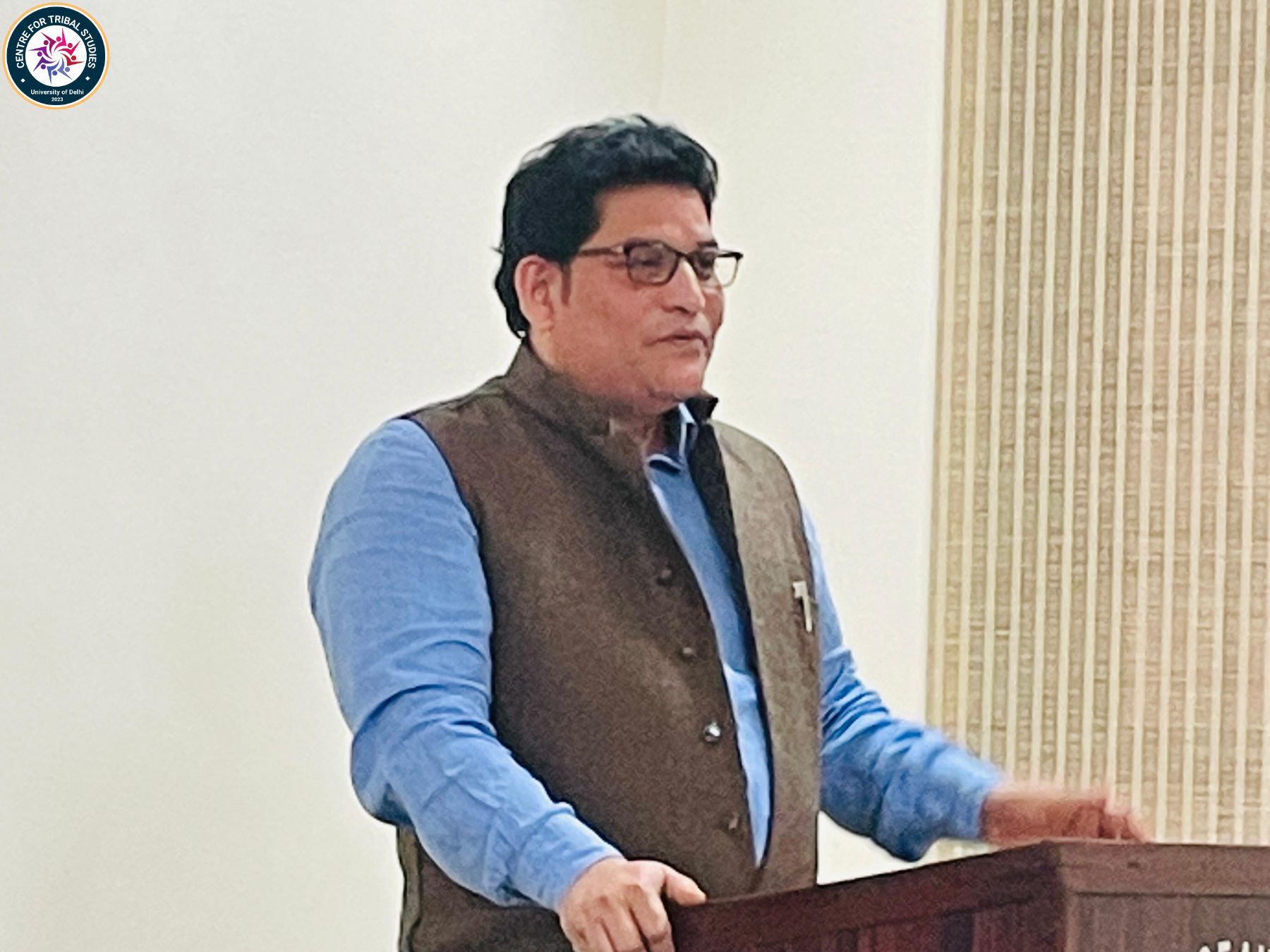
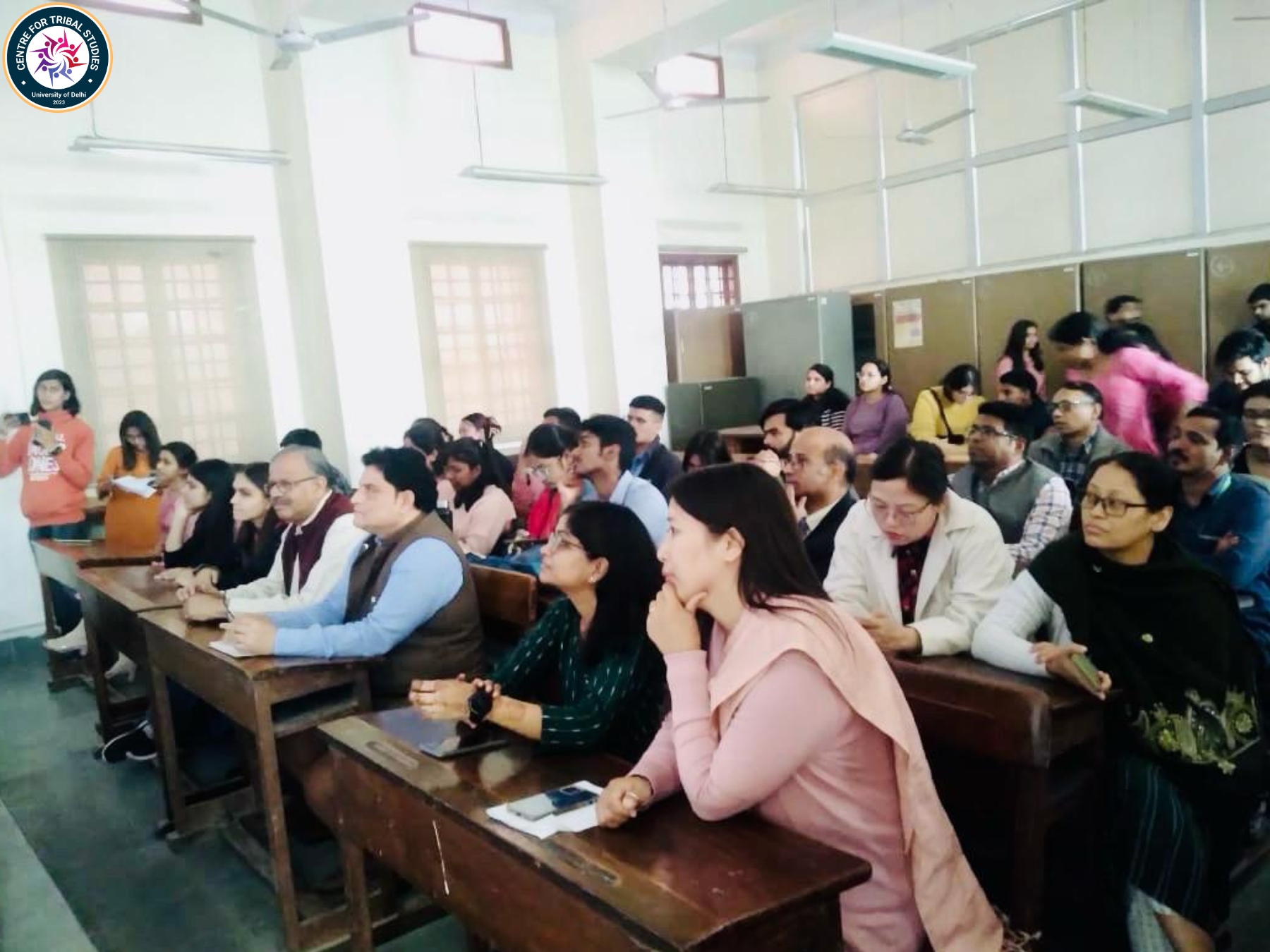
The event was presided over by Prof SM Patnaik, Head, Department of Anthropology and Director, Centre for Tribal Studies, University of Delhi. He said that the present generation of students can take inspiration from the life and struggle of Birsa Munda who at the age of 25 could challenge the powerful British empire thus creating a role model worth remembering by the nation even after 150 years. The young age is not a disadvantage but can turn into a source of great potential.
"Millennium Water Story: Practicing Visual Anthropology for Water Sustainability"
by Nandita Singh and Om Prakash Singh (March 2024)
The project ‘The Millennium Water Story’ stands as a testament to dedication towards knowledge creation for a sustainable future through the powerful medium of visual storytelling. In a world where the concept of sustainable development often seems like an oxymoron, social scientists are at the forefront, striving to bridge the gap between theory and practice, especially through a bottom-up approach. Through insightful photo essays on different tribal communities from Rajasthan and Nagaland, the speakers effectively showcased the intricacies and challenges of water sustainability in diverse contexts.
What sets this work apart is the deliberate choice of using black and white photography, which serves as a poignant representation of the complexities of life and the gravity of the water crisis. By stripping away the distractions of colour, they allow viewers to focus solely on the essence of the issue at hand. Through this monochromatic lens, they highlight not only the stark realities of water scarcity but also the resilience and resourcefulness of communities in managing local water resources.
One of the key insights gleaned from this work is the critical role of social capital in the management of indigenous water recharging technologies. Through their visually compelling narratives, the speakers effectively demonstrate how communities harness collective knowledge and social networks to implement sustainable water management practices. Their project serves as a powerful reminder of the importance of community-based approaches in addressing complex environmental challenges and paves the way for future research and action in the field of water sustainability. Read more
